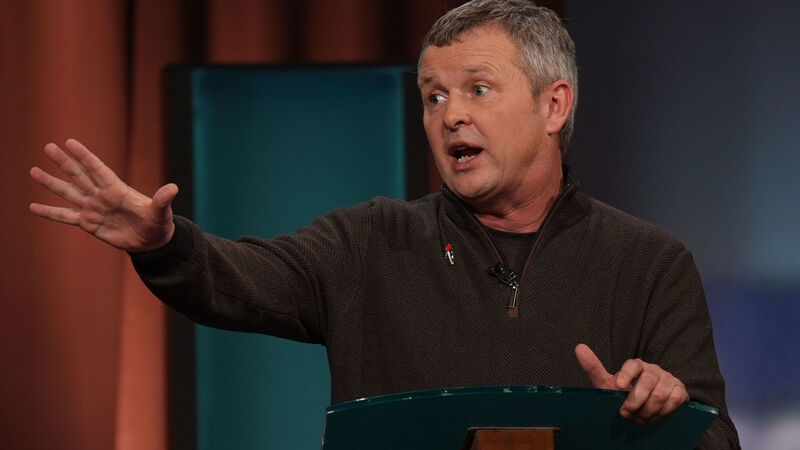Elaine Loughlin: Richard Boyd Barrett starts what’s likely to be his most gruelling campaign yet

Richard Boyd Barrett speaking during an RTÉ general election party leaders' debate last November. The TD revealed to Claire Byrne this week that he had been diagnosed with throat cancer during that campaign.
Richard Boyd Barrett’s raw but understated interview this week, during which he announced he will be stepping back from politics as he undergoes treatment for throat cancer, put the usual Dáil shenanigans into perspective for many.















